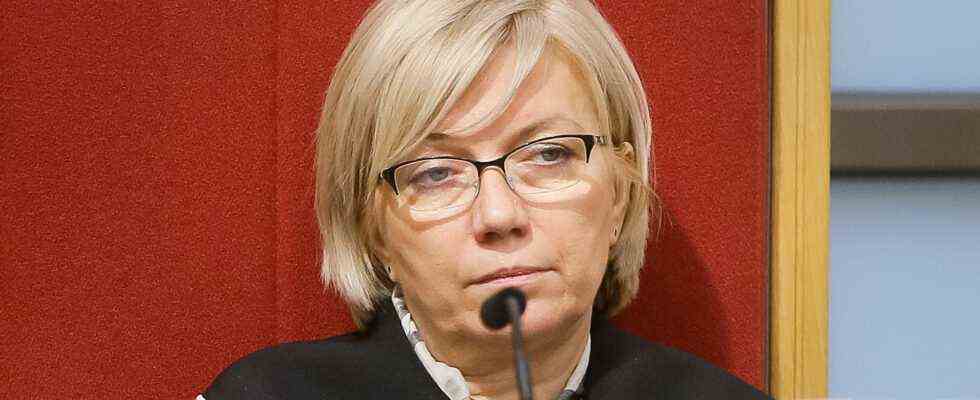portrait
Status: 20.10.2021 3:08 p.m.
The President of the Constitutional Court of Poland, Przylebska, is best known in private with the PiS chairman Kaczynski. Unsurprisingly, critics complain that judgments in the interests of the government are being passed under their aegis.
In 1988 Julia Przylebska, a member of the Socialist Student Union, was appointed judge – just before the political change in Poland. She interrupted her career several times to work in the diplomatic service; In this context, she negotiated with Germany over compensation for forced laborers. But time and again she returned to the judicial service; an application in Poznan met with reservations among the judges there. The college of judges reprimanded shortcomings in the case law and increased absenteeism, as researched by the government-critical “Gazeta Wyborcza”; accordingly, a striking number of their judgments were corrected through the courts.
PiS boss Jaroslaw Kaczynski, himself a lawyer, passed a completely different judgment on Przylebska about today’s President of the Constitutional Court of Poland. “She is chairman of the constitutional court, but our acquaintance is private.” He likes to visit her, said Kaczynski – “by the way, you visit a lot of people because she is very sociable”.
Julia Przylebska, President of the Polish Constitutional Court, at her inauguration (archive photo from 2015).
Image: picture alliance / dpa
Constitutional Court as a supervisory authority is perdu
Since then, the idea has been in the room that Przylebska cooks the single Kaczynski regularly – a symbol of the far-reaching criticism that the constitutional court has become an extended arm of the government under her aegis. In fact, the PiS began its judicial reforms with the appointment of constitutional judges, some of which the party was not entitled to – the government unceremoniously overruled a judgment of the constitutional court in the old lineup that rejected these personal details by not publishing it in the official gazette.
According to Przylebska himself, everything is done according to the law. In 2017 she said: “When I say that the Constitutional Court should be returned to the citizen, I mean that it should deal with their concerns, that is, with constitutional complaints, legal questions of the courts – that which directly affects the citizen. For one year the Constitutional Court has dealt with itself. It’s about dealing with things that are important to the citizen. “
In fact, however, hardly any cases have recently been negotiated there at all; the Constitutional Court has largely lost its role as an unreservedly recognized supervisory body.
Arbitration chambers on the line of the President
The Warsaw political scientist Klaus Bachmann describes their approach from his point of view. He states: “The constitutional court no longer works. Hardly any complaints are received and the matters that are still to be decided are decided in such a way that the President agrees … And now it is being put in place as a countervailing power to the ECJ brought.”
Not only in the dispute with Brussels over the rule of law is the constitutional tribunal perceived as the spearhead of the government; Even with the politically unenforceable tightening of abortion law, it was ultimately the court that cleared the way for it – even if the government then took three months to publish the law in the face of mass protests, which in Poland is a prerequisite for legal effectiveness is.
In her office, Przylebska is inviolable to politics; theoretically, it could also take a stand against the government without risk, as constitutional courts in other countries do. In the end, however, she and the court did not attract attention – and experts recall in this context that she could be blackmailed through her husband: Husband Andrzej Przylebski is Poland’s ambassador in Berlin and could be dismissed from this prestigious post at any time.

